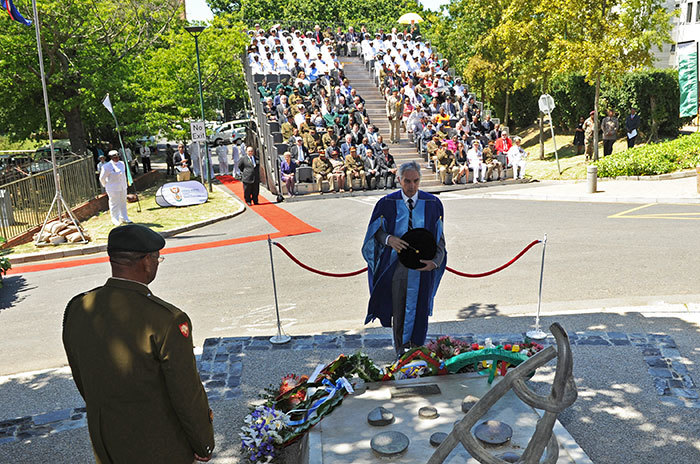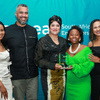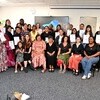Heroes of the SS Mendi remembered
21 October 2014 | Story by Newsroom
On 21 February 1917, 616 South African men died on the SS Mendi. Some 607 of them were part of the 823-strong 5th Battalion South African Native Labour Corps, who boarded the ship to lend support to the war effort in Europe.
UCT together with the Department of Defence and Military Veterans recently remembered these men at the rededication of the SS Mendi Memorial on lower campus.
Calling the association between UCT and the SS Mendi an "accident of history", UCT Vice-Chancellor Dr Max Price spoke of the privilege the university was afforded "to participate in preserving the national, military and intensely political heritage reflected in the tragedy of the SS Mendi".
The ceremony acknowledged the upgrade of the memorial with a roll of honour and interpretive material. This upgrade was sponsored by UCT and "the rededication will open the way for annual military services to be held in honour of these men, who are now officially (and finally) recognised as veterans," said Price.
The memorial is situated on UCT property not because any of the men on the SS Mendi attended the university, but because what is lower campus today belonged to the Rosebank Showgrounds in 1917. "The troops of the South African Native Labour Contingent were billeted here before they were shipped to France," explained Price.
'An interesting paradox of conscription'
According to Price the story of the SS Mendi "puts into stark relief the different experience of the black and white soldiers and volunteers during both world wars". Black volunteers were not allowed to carry arms and as a result of their non-combatant status, they were only listed as war veterans quite recently.
Price also pointed out that "an interesting paradox of conscription" was that black volunteers were paid double the rate of their white counterparts, adding that this "reflected the ambiguous status and the discomfort at recruiting black volunteers to support the war effort and yet denying them their right as soldiers".
Another speaker at the ceremony Tsepe Motumi, director-general of the Department of Military Veterans, spoke of other ways in which black recruits were made to feel different to their white counterparts:
"White South African also went north to fight and when they got home (they) were rewarded with medals and land. Black recruits from neighbouring British protectorates were also decorated, but the South African government decided not to award any medals to its black citizens."
Motumi maintained that another reason why those on the SS Mendi had to be remembered was for the courage they showed when facing death. "Old eyewitness accounts of the bravery exhibited by the doomed men have become legendary. The most famous story is that of men performing the death dance as the ship went down."
He quoted Reverend Isaac Dyobha, who as the ship was sinking encouraged the men with, "Brothers, we are drilling the death drill. I, a Xhosa, say you are my brothers. Zulus, Swazis, Pondos, Basothos and all others, let us die like warriors. We are the sons of Africa. Raise your war cries, my brothers, for though they made us leave our assegais back in the kraals, our voices are left with our bodies."
Story by Abigail Calata. Photo by Michael Hammond.
Read more:
Download Vice-Chancellor Dr Max Price's full speech
 This work is licensed under a Creative Commons Attribution-NoDerivatives 4.0 International License.
This work is licensed under a Creative Commons Attribution-NoDerivatives 4.0 International License.
Please view the republishing articles page for more information.










